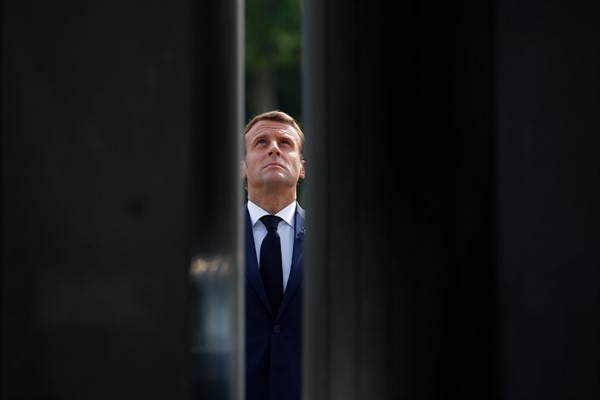Emmanuel Macron’s election as French president in May 2017 was celebrated by observers in France and around the world as a victory for pro-European liberalism over the wave of nationalist populism that had been sweeping across the continent in the decade following the global financial crisis.
As if to underscore that theme, at his post-election victory celebration in the courtyard of the Louvre, Macron’s campaign team distributed European Union flags to the young candidate’s supporters as the Ode to Joy, the EU’s anthem, played. In the early months and years of his presidency, Macron made clear that he planned to deepen European integration in tandem with Germany, and he further burnished his multilateral credentials on multiple occasions, presenting himself as a liberal internationalist foil to Donald Trump’s “America First” nationalism.
It was somewhat jarring, then, to hear Macron declare three years later, as the coronavirus pandemic raged, that France “must take back control” of its strategic supply chains, including food supplies as well as products crucial to the country’s pandemic response. His echoing of a slogan used by British supporters of Brexit was not an anomaly. Macron now uses the word “sovereignty,” another buzzword popular with Brexiteers and nationalists across Europe, more frequently than any of his recent predecessors.

